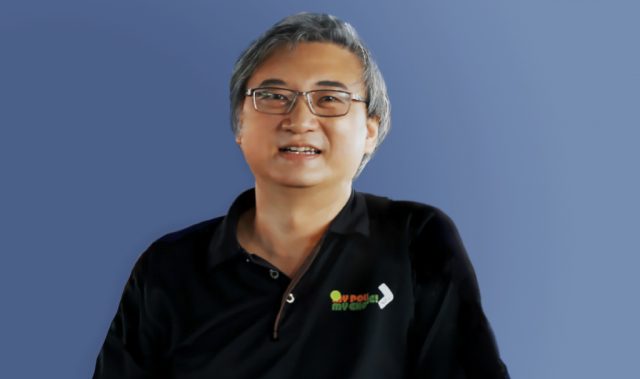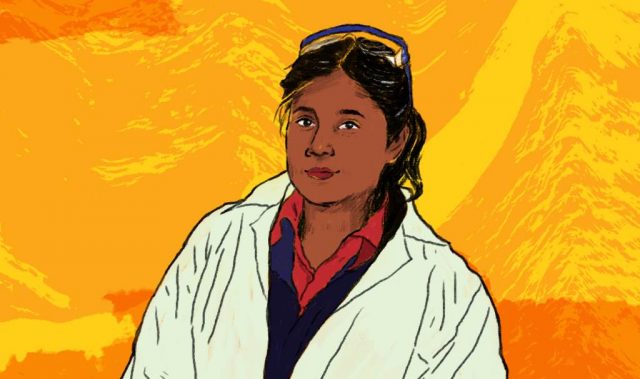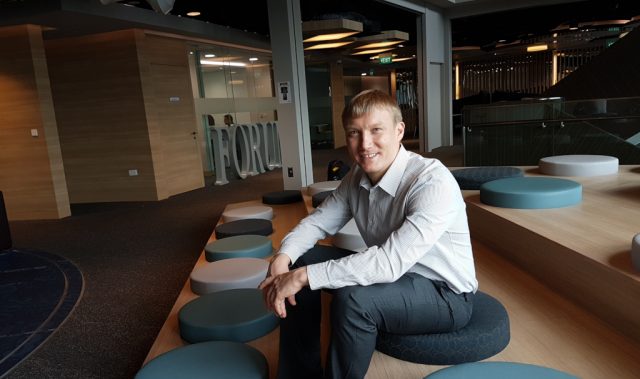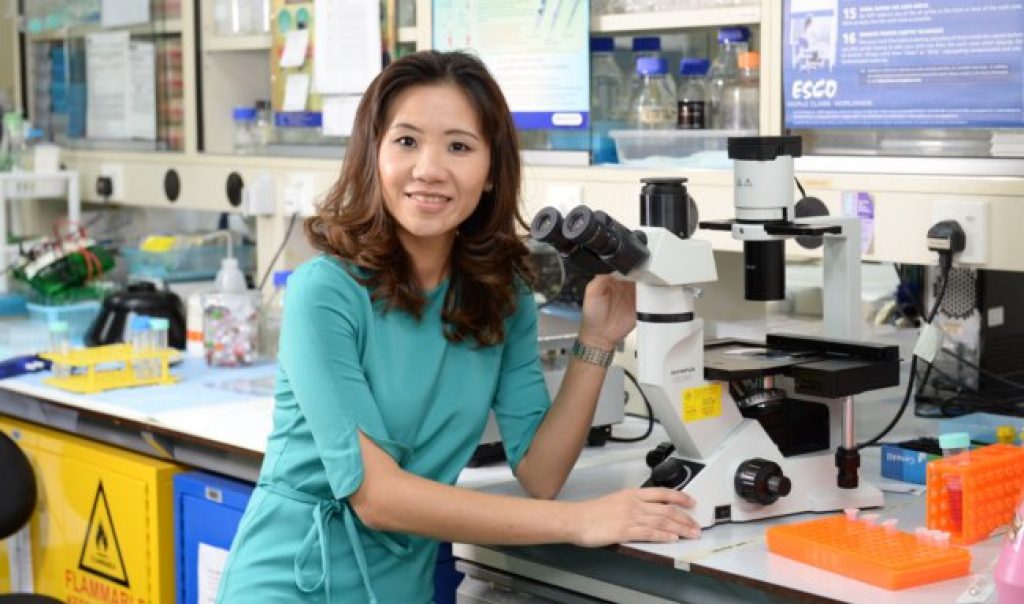
Chan Yoke-Fun
Associate Professor
Department of Medical Microbiology, Faculty of Medicine
University of Malaya, Malaysia
AsianScientist (Nov. 11, 2015) – For parents across the world, a child complaining of a sore throat may immediately give rise to worries of hand, foot and mouth disease – a mild, contagious viral disease that causes painful blisters in the throat, gums, cheeks, soles of the feet, and palms of the hands.
Hoping to find a solution to this ubiquitous disease is infectious disease expert Associate Professor Chan Yoke-Fun, who studies how enterovirus 71 causes hand, foot and mouth disease in children.
A rising star in the field, Chan started her career as a research scientist after completing BSc and PhD degrees at the University of Malaya. In 2014, she was one of three Malaysian scientists selected as national fellows for the 2014 L’Oréal-UNESCO For Women in Science National Fellowship Program.
Earlier this year, the L’Oréal-UNESCO Foundation again honored Chan by naming her as one of their 15 For Women in Science International Rising Talents.
- How would you summarize your research in a tweet (140 characters)?
- Describe a completed research project that you are proudest of.
- What do you hope to accomplish with your research in the next decade?
- Who (or what) motivated you to go into your field of study?
- What is the biggest adversity that you experienced in your research?
- What are the biggest challenges facing the academic research community today, and how can we fix it?
- If you had not become a scientist, what would you have become instead?
- Outside of work, what do you do to relax?
- If you had the power and resources to eradicate any world problem using your research, which one would you solve?
- What advice would you give to aspiring researchers in Asia?
My research focuses on how enterovirus A71 virus causes hand, foot and mouth disease and brain infection in children.
We found that heparan sulfate is one of the attachment receptors for enterovirus A71 virus. We have identified an antiviral peptide from a viral capsid protein that contains a heparan sulfate-specific glycosaminoglycan binding domain. Heparan sulfate is a negatively charged linear polysaccharide found in human tissue. Blocking this receptor can also block the virus, and potentially help to treat the disease.
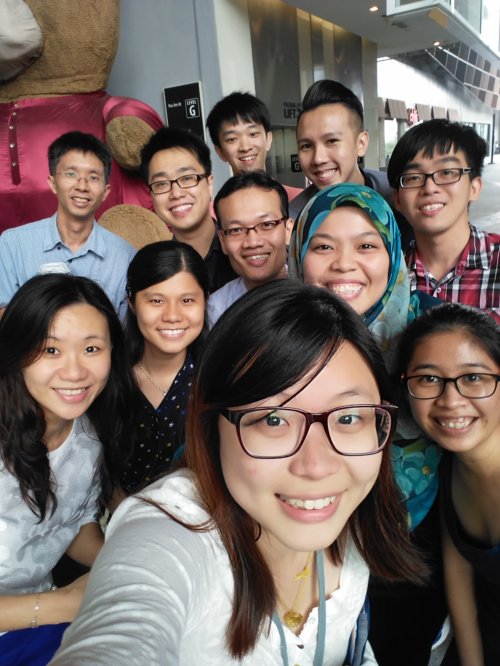
I hope to see my research findings translated to help make an impact on society, be it an antiviral drug for the sick or public policy to reduce the transmission of the virus. I hope that I can put Malaysia onto the international map through my research.
Historically, viruses – from the Black Death in the 13th century to the Spanish flu in the 19th century – killed millions. Recently, emerging viruses such as SARS, Ebola and MERS have caused widespread disease and taken many lives. There are over 20 discoveries in infectious diseases that have merited Nobel Prize recognition since the inception of the award in 1901. The 2015 Nobel Prize for Physiology or Medicine also went to the field of infectious diseases. Therefore, the probability of me winning a Nobel Prize for my research should be higher too!
In a developing country like Malaysia, we may have the technology but we do not have the expertise. Adding to the burden is the unwillingness of senior researchers to share [their expertise]. Local funding is usually small, and it only lasts for a year or two. It is difficult to plan good research projects with such short-term and low funding.
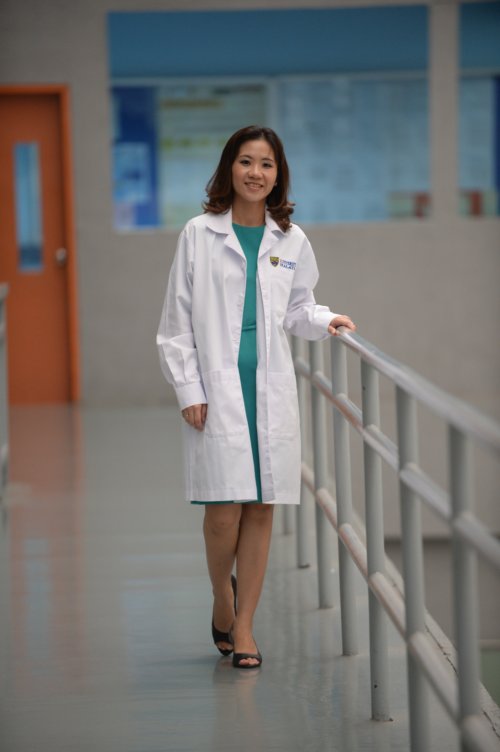
As a lecturer at the university, I need to divide my time among many different roles and functions, i.e., teaching, research and administration. Universities should create multiple tracks so that we can do what we are good at.
As a female academic, I have many hats to wear. At work, I am a scientist, teacher and manager; back at home, I’m a wife and mother. It is a big challenge to change the perception that women scale back at work after marriage and motherhood. In fact, I think all working mums just stretch themselves instead of doing less. We still put in 100 percent at work and 100 percent at home.
Probably a full-time housewife. I believe in nurturing my kids with the right values and attitudes at home and giving them a good education. Watching them grow up every day is a pleasure.
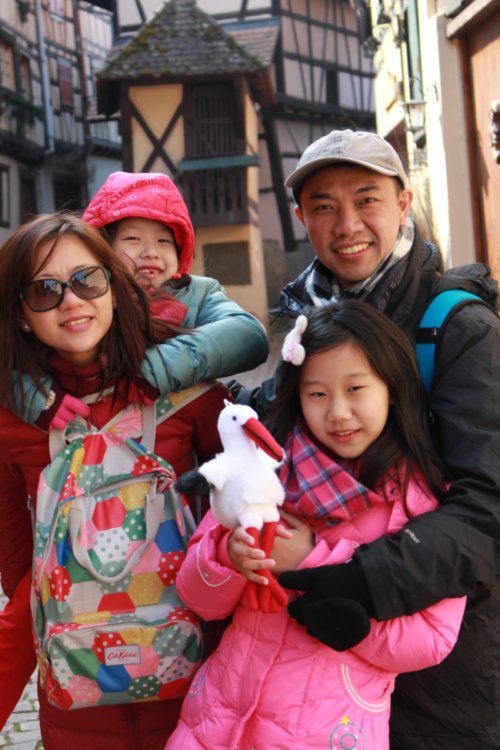
I try to exercise three times a week, and watch movies with my family. My family also likes to travel together. We enjoy going on famous food trails around Malaysia.
I will still choose to work in the field of infectious diseases. Many diseases are preventable if we have access to clean water and keep up with good hand hygiene. Many diseases are also preventable by vaccination. Scientists should use their voice to help marginalized sectors of society, and advocate for infection control and the use of vaccines.
“Stay hungry, stay foolish,” as Steve Jobs once said. Don’t be complacent if you want to reach greater heights in science. Don’t think you know a lot, and always work with people who are more clever than you.
This article is from a monthly series called Asia’s Rising Scientists. Click here to read other articles in the series.
———-
Copyright: Asian Scientist Magazine; Photo: Chan Yoke-Fun.
Disclaimer: This article does not necessarily reflect the views of AsianScientist or its staff.






